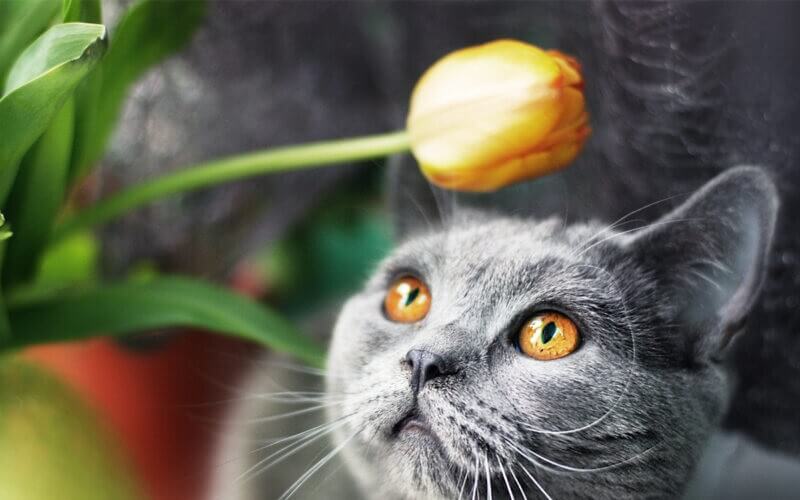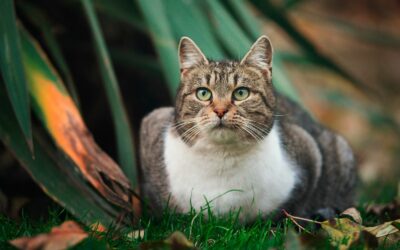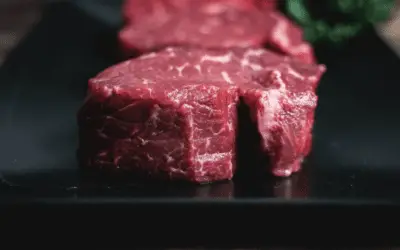Today we’re looking at eight foods and plants that are dangerous to felines:
Onions & garlic
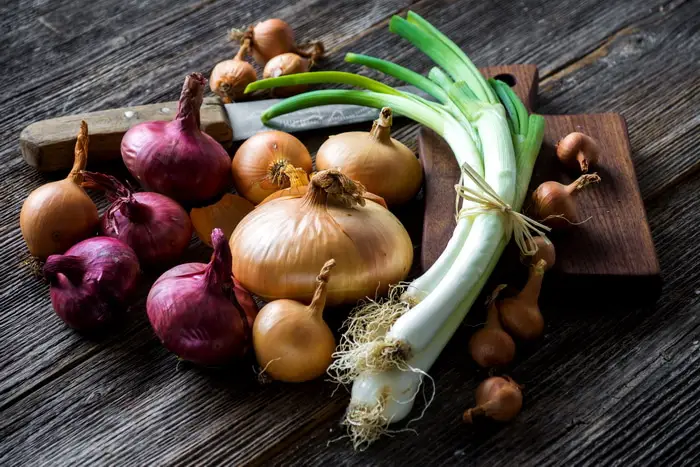
A staple in almost every kitchen around the world, onions, and garlic are amazing flavor enhancers used in countless recipes. A cat’s stomach, however, will not respond very well to them.
It doesn’t matter whether they are fresh or cooked either; both can cause gastrointestinal issues and diarrhea. They can even contribute to chronic renal failure if large amounts are frequently ingested.
Raw onions have another extra poisonous effect: they contain two compounds called thiosulphates and disulfate, which damage the red blood cells that transport oxygen through the whole body.
Lily plant

Officially known as Lilium (from the family of Liliaceae), these plants are among the most dangerous things your cat could possibly eat. Ingestion can quickly lead to acute renal failure, a severe condition where the kidneys cease to function in just a few days.
The kidneys remove metabolic waste products from the blood and are therefore very much essential to our survival. Acute renal failure is lethal unless very aggressively treated by a vet.
If you have a cat (or if you are planning on getting one), it’s probably a good idea to get some different plants or to move your lilies to a place that you are 100% sure your cat is not able to reach.
Green Tomatoes
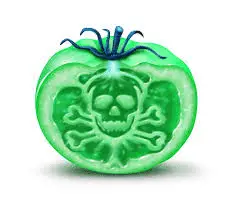
Tomatoes are members of a family of flowering plants called Solanaceae (more commonly known as nightshades). Some members of this family are highly toxic to animals, but several others are a major source of food for humans. Tomatoes, potatoes, and chili peppers are examples of nightshade plant parts that are frequently harvested and consumed.
Green tomatoes are best avoided; they contain an alkaloid compound that causes violent gastrointestinal problems in cats. Thankfully, the more familiar red tomato that we often use in the kitchen is not so poisonous.
Raw salmon
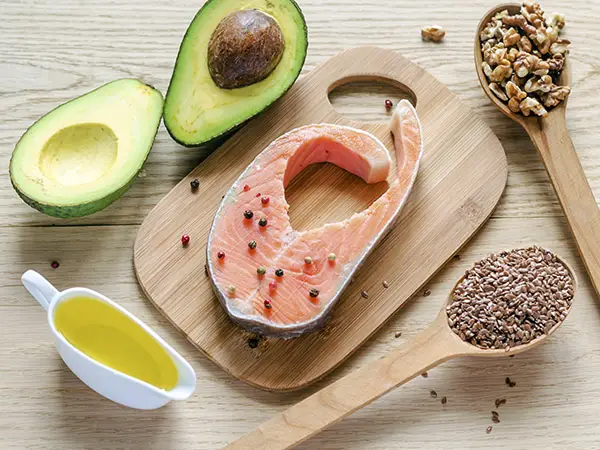
As we wrote in our review of the best salmon cat food brands, raw salmon contains a substance that can cause thiamine deficiency in cats. If you want to make homemade meals with salmon for your kitty, it is vital that you remove this by cooking the meat. Once cooked, salmon is an amazing source of protein and super healthy fat. The omega 3 and 6 present in the meat have a whole range of extraordinary benefits.
Cocoa products
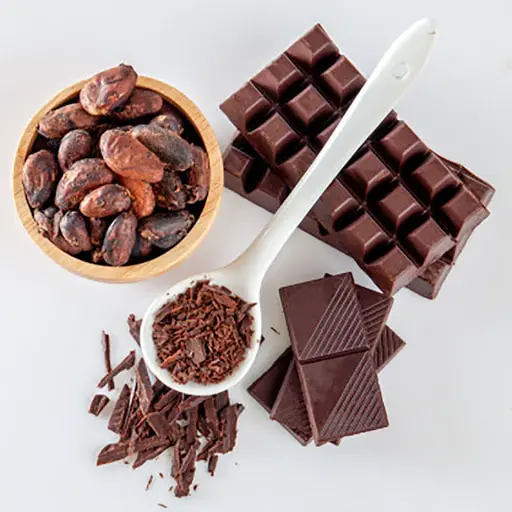
Fortunately, this has become somewhat common knowledge in recent years, but we still think it is worth mentioning: cocoa and chocolate contain a compound known as theobromine which cats (and dogs!) are unable to break down.
Once this substance builds up in the body’s tissues it will quickly become toxic and cause very serious poisoning symptoms. The purer or darker the chocolate, the more theobromine it usually contains, and thus the more dangerous it is for your cat.
Also, with cats being as small as they are, they don’t need to ingest a whole lot of theobromine before they become sick. Make it a point to always keep cocoa products out of reach when your pets are around.
Grapes

They make for a delicious flavor in those tasty purple-colored soda drinks, but grapes have been known to cause acute kidney failure in pets. Experts are not entirely sure yet on the mechanism behind this.
Studies showed some dogs could eat a whole lot without getting sick, while others experienced severe poisoning symptoms after ingesting just a small amount.
So far, the potential dangers to other pets are not well-documented. Since we’re rather safe than sorry, we suggest you keep your cat away from grapes (and raisins) entirely.
Xylitol
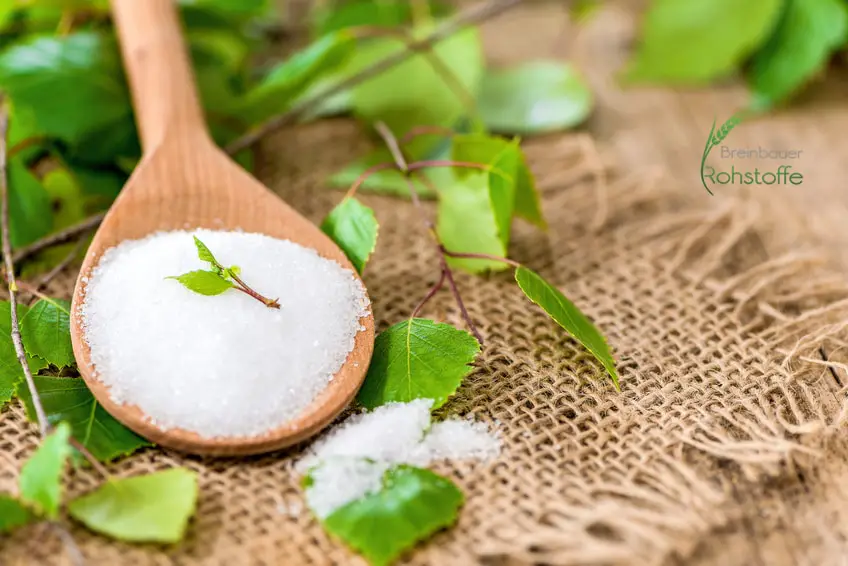
These white crystals are often used as an artificial sweetener or substitute for white sugar. The toxicity of xylitol in mammals is the subject of an ongoing debate, but it has been established with certainty that high doses of xylitol can promote a sudden release of insulin in the body, resulting in the same symptoms as those often seen in diabetes type 1. These symptoms include:
- Dizziness, anxiety, and excessive sweating
- Irregular/faster heartbeat
- Headaches
- Inability to concentrate
- Irritability
In the worst cases, ingestion of large amounts of xylitol could lead to seizures, brain damage & liver failure.
Nuts
Although cats are unlikely to eat nuts (they don’t particularly like the taste), they are potentially hazardous and should be avoided. Macadamia and walnuts, in particular, are known to have caused problems in felines.
Walnuts
Walnuts are very beneficial to us: they improve intestinal health and help maintain a healthy weight. Walnuts are also known to help us manage diabetes and blood pressure. But when cats consume walnuts, their digestive tract will give rise to a lot of discomforts.
While they are not necessarily toxic to cats, they do contain an unhealthy amount of salt and fat. Since the digestive tract of cats is not built to process these substances in such significant quantities, ingestion can lead to an upset stomach and vomiting. Regularly feeding your cat walnuts may also result in kidney failure.
Macadamia’s
The exact reason is yet to be uncovered, but macadamia nuts are highly toxic to pets. Ingestion can negatively affect the muscles and nervous systems. Possible symptoms include vomiting and hypothermia.
Did we miss anything? Let us know in the comments below!

